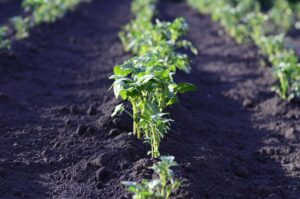Agroecology, also known as organic agriculture, has established itself as an agricultural system that seeks to produce high-quality food without compromising the balance of the environment. Its main objective is to ensure soil fertility and optimize natural resources without resorting to synthetic chemicals, thus promoting sustainable production that respects ecosystems.
This agricultural model stands out for its low environmental impact, based on five fundamental pillars such as efficient use of energy and natural resources, biodiversity conservation and regional ecological balances, soil fertility improvement and maintenance, water quality preservation, and animal welfare, ensuring adequate living and breeding conditions.
According to the United Nations, agroecology is a “set of agricultural practices” that imitates natural processes and creates beneficial biological interactions within the agroecosystem. Thus, proper management of organic matter and soil biotic activity allows for healthy and sustainable plant growth.

A Model Based on Science and Tradition
Researcher Miquel A. Altieri defined agroecology in 1995 as an ecosystem-based approach to agricultural production, inspired by traditional peasant techniques and reinforced by modern scientific advances. This model maintains that agriculture and food systems are deeply interconnected with social and ecological systems.
Agroecology also encompasses various alternative agricultural practices such as conservation agriculture, agroforestry, biological pest control, and the combination of crop farming with organic livestock.
Sustainability and Productivity
One of the key objectives of agroecology is to achieve a balance between productivity and sustainability. To do this, it promotes the use of local resources, minimizes financial impact on farmers, and aims to be adaptable to different climatic and geographical conditions.
Some essential practices in agroecology include:
- Biomass renewal and soil fertility conservation.
- Reduction of solar energy, water, and air loss.
- Genetic diversification and improvement of biological interactions.
- Natural pest and disease control through the promotion of natural predators.
The Challenge of Feeding the World Without Harming the Planet
Agroecology is not only an alternative to intensive production systems, but also poses as a viable solution to address the challenges of climate change and global food crisis. This model seeks to maximize production without affecting ecosystems, avoiding the use of pesticides, chemical fertilizers, and genetically modified organisms.
Respect for the environment is one of the basic principles of agroecology. Through responsible management of water resources and reducing contaminants, it aims for cleaner, more efficient, and resilient agriculture. Thus, agroecology emerges as a sustainable model to ensure food security without compromising the well-being of the planet.

What is Agroecology and Why is it Important?
Agroecology is a science that aims to produce food sustainably, preserving natural resources and the environment. It is an alternative to conventional agriculture.
Importance of Agroecology
- Contributes to food sovereignty
- Improves quality of life
- Reduces dependence on external inputs
- Increases farm resilience to climate change
- Preserves biodiversity and natural resource base
- Boosts food production
- Enhances food security
- Empowers peasant communities
- Contributes to environmental, social, gender, economic, racial, and intergenerational justice
Characteristics of Agroecology
- Combines traditional and scientific knowledge
- Promotes income diversification for peasant families
- Proposes local and regional solutions
- Uses low-cost technologies and innovations
- Relies on native and local community experimentation
- Reduces pest numbers through natural means
- Saves on chemical products
Have you visited our YouTube channel yet? Subscribe now!

